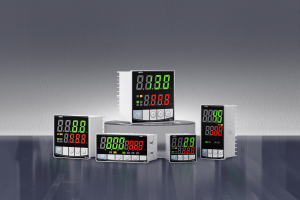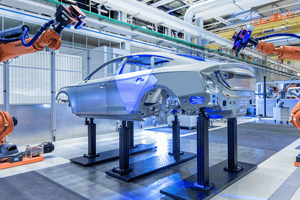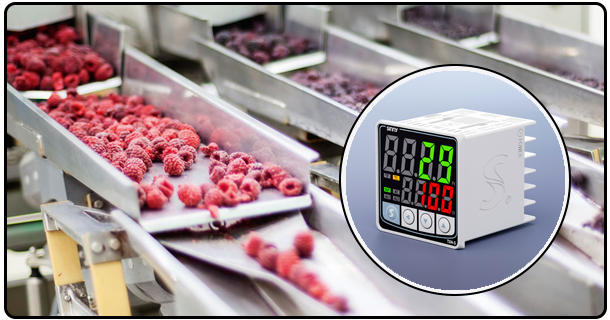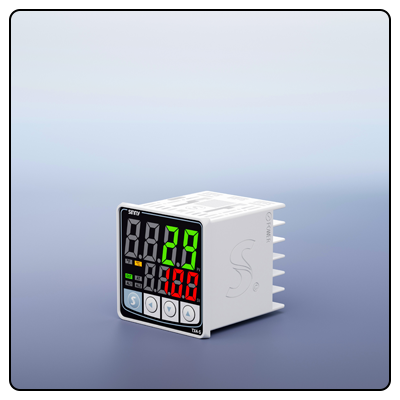Temperature Controllers in Industries: A Comprehensive Overview
Temperature controllers tailored for various industries - manufacturing, food processing, pharmaceuticals, HVAC systems, chemical processing, semiconductor production and automotive production can be found here. You'll discover key requirements as well as suggested temperature controllers to increase performance and efficiency within each field.
1. Introduction
Temperature controllers play an essential part in many industries, providing precise temperature regulation to enhance productivity and efficiency. Each industry may require its own specific set of needs when choosing its temperature regulator - this article features best temperature controllers by industry.
2. Manufacturing Industries
Requirements for Precise Temperature Regulation: Precise temperature control can prevent product defects or inconsistencies from emerging, making it an integral requirement in this sector.
Recommended Controllers: PID controllers and Multiloop controllers make perfect choices for manufacturing applications, providing accurate temperature regulation through proportional, integral, and derivative actions respectively; multiloops manage multiple temperature zones independently for increased process efficiency.
Temperature controllers play an essential part in manufacturing processes like plastic molding, metal treating and electronics production. Their precision helps manufacturers achieve uniform product quality while meeting material properties desired during processing or assembly; overheating prevention provides maximum component reliability while long term stability of components remains in tact.
3. Food and Beverage Industry
The requirements in the food and beverage industry generally involve hygiene, safety and meeting food safety standards. Temperature control plays a significant role in quality assurance as well as spoilage prevention of products.
Controller Recommendations: For accurate temperature regulation as well as real-time compliance monitoring with safety standards, digital controllers equipped with data logging and remote monitoring features should be chosen over traditional analog models as they offer precise temperature regulation with real time updates on temperature adjustments that help meet safety standards efficiently.
Temperature controllers play an essential role in pasteurization, fermentation, refrigeration and storage environments. Pasteurization utilizes temperature controls to kill off harmful bacteria while fermentation produces ideal conditions for microorganism activity; and refrigeration extends product shelf life by preventing spoilage and prolonging product shelf life.
4. Pharmaceutical Industry
Key Requirements: Temperature regulation plays a vital role in maintaining product efficacy and safety; regulatory compliance plays an integral part of their daily business operations, too.
Recommending Controllers: PID controllers equipped with autotuning features make an excellent choice for pharmaceutical applications, providing precise temperature regulation while automatically optimizing settings to reach peak performance.
Temperature controllers play a pivotal role in drug manufacturing, storage and transport processes. Their solutions help maintain active ingredient stability during manufacture; stores depend on them to protect product integrity while transporters rely on them to prevent unexpected temperature excursions that compromise patient care quality.
5. HVAC System
An effective HVAC system must provide energy-efficiency, comfort and environmental regulation simultaneously - temperature controllers play a pivotal role here by optimizing energy consumption while creating more pleasant indoor conditions simultaneously.
Recommended Controllers: IoT controllers that allow remote monitoring and control can make selecting HVAC controllers for HVAC systems much more convenient and efficient.
Temperature controllers have become essential components in heating, ventilation and air conditioning (HVAC) systems in homes and commercial businesses alike, providing comfortable indoor temperatures while simultaneously optimizing energy consumption and improving air quality. They even play an essential part in industrial processes by making certain pieces of equipment more functional during processes.
6. Chemical Processing Industry
In chemical processing industries, safety must always come first and precision is of utmost importance when creating safe chemical reactions with optimal outcomes. Temperature regulation plays an integral part in providing for these ideal outcomes and provides for safer chemical processes overall.
PID controllers and explosionproof controllers make excellent choices for chemical processing applications, providing precise temperature regulation through PID technology while safeguarding employees in hazardous environments with explosionproof controllers.
Temperature controllers play an essential part in chemical reactions, distillation and refining processes. Temperature controllers create optimal conditions that aid rapid reaction rates; distillation separates according to boiling points; while refining guarantees product purity and ensures quality products.
7. Semiconductor Industry
Accuracy, stability and contamination control are critical to success in the semiconductor industry. Temperature fluctuations can significantly degrade device quality and performance resulting in issues or decreased output from manufactured devices.
PID Controllers and Multiloop Controllers Are Ideal Solutions for Semiconductor Applications: PID controllers and multiloop controllers are widely recommended as they offer accurate temperature regulation that protects product quality while guaranteeing reliable devices.
Temperature controllers play an essential part in wafer fabrication, chemical vapor deposition (CVD), and etching processes - helping ensure uniformity and quality when creating semiconductor wafers; controlling deposition rates and film properties during CVD applications; as well as maintaining precise material removal conditions during etching processes.
8. Automotive Industry
Requirements: Preciseness, reliability and durability are of utmost importance in the automotive industry; additionally effective temperature management must also be in place in order to preserve component functionality and lifespan.
PID controllers and multiloop controllers are perfect for automotive use, providing precise temperature regulation across multiple temperature zones independently.
Temperature controllers play an essential part in engine testing, climate control systems and battery management systems. Engine tests mimic operating conditions accurately while climate controls help create comfortable cabin temperatures; battery management safeguards against overheating to protect both safety and performance of batteries.
9. Conclusion
Selecting an optimal temperature controller is critical in achieving maximum performance and efficiency across various industries. By carefully understanding their individual industry-specific needs and selecting an adapted temperature controller, businesses can increase product quality, process efficiency and regulatory compliance while consulting experts or reviewing advanced features can make more informed decisions that foster long-term operations improvement.
- Temperature Controllers Provide Advanced Features
- Temperature Controllers: Enhancing Precision and Consistency























